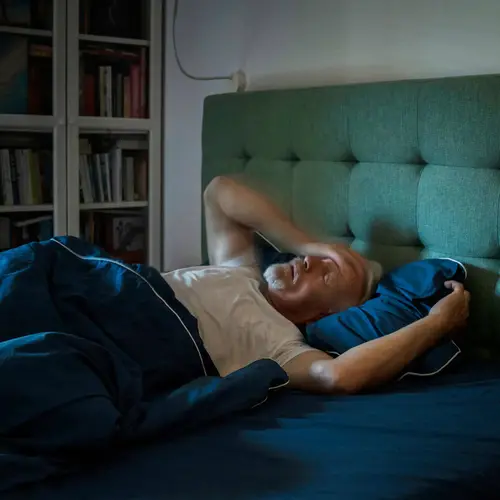The idea of having hallucinations can be upsetting. Hallucinations are usually associated with serious mental conditions or with the effects of drugs. If you have an unexplained hallucination while trying to sleep, you may wonder if something is wrong.
Hallucinations While Falling Asleep
While some types of hallucinations are a cause for concern, many people experience harmless hallucinations as they are falling asleep. They are called hypnagogic hallucinations, and they are fairly common. You may hear or see things that seem real while you are in the state between waking and sleeping. Other senses, such as smell and touch, may also be involved.
These hallucinations aren't a symptom of mental illness. Experts don't know exactly what causes them, but they know they aren’t a cause for concern. They’re simply something that your brain might do during the process of falling asleep.
Sometimes, hypnagogic hallucinations happen along with a state of sleep paralysis. In sleep paralysis, the muscles in your body will be immobile, and you won’t be able to move. The combination of immobility and hallucinations can be frightening. It can last for up to several minutes before your muscles return to normal.
People who have a sleep disorder called narcolepsy are more likely to have hypnagogic hallucinations. Narcolepsy causes you to sleep excessively and feel very tired all of the time. If you think you have narcolepsy, talk to your doctor about your symptoms.
Other Sleep-Related Experiences
Another common experience while falling asleep is a hypnic jerk, or sleep start. As you are drifting off, you may be aware of a sensation of falling, or you may feel like you are dreaming about falling. Your body may suddenly jerk you awake. These sleep starts are most likely harmless.
The movement in hypnic jerks is an involuntary muscle spasm called myoclonus. Hiccups are another form of myoclonus muscle spasm. Not all hypnic movements will wake you up the way a sleep start will. Sometimes, the movements will be small twitches that you won’t notice.
Some people have hallucinations as they’re waking up. These are called hypnopompic hallucinations. These types of hallucinations are similar to hypnagogic hallucinations, but they may feel more like an extension of a dream. Sleep paralysis is often associated with hypnopompic hallucinations.
Sleep hallucinations are different from dreams, and they feel more real than dreams do. You may know instantly when you wake from a dream that you were just dreaming but aren’t any more. In a sleep hallucination, you may not be able to figure out what is real and what isn’t for several minutes.
What Causes Sleep Hallucinations?
For many people, sleep hallucinations don’t have a clear cause. In other cases, there are some factors that can lead to sleep hallucinations, including:
- Alcohol or drug use
- Certain prescription medications
- Chronic insomnia
- Anxiety, stress, or other mental health issues
Are Sleep Hallucinations Dangerous?
In general, hypnagogic hallucinations aren’t dangerous, even if they can be unsettling. For most people, they don’t happen often and are not connected with any other health issues. But if they start to happen often and affect your ability to get enough sleep, talk to a doctor.
Treatment for Sleep Hallucinations
If you find that you can’t sleep due to frequent sleep hallucinations, your doctor will work with you to figure out a solution.
Lifestyle changes. If stress or anxiety leads to your sleep hallucinations, your doctor may suggest relaxation techniques that make falling asleep easier. Mediation, conscious relaxation, or other calming practices may help. They may also suggest that you use good sleep hygiene by keeping your bedroom uncluttered, dark, and cool. You may consider only using your bedroom for sleep to create the mental link between that room and rest.
Health factors. If you are taking a prescription medication that is causing sleep disturbances, talk to your doctor about that. You may be able to change medications to improve your sleep while still treating the original condition.
Drugs and alcohol. If you are using recreational drugs or alcohol, your doctor may advise you to stop. Discontinuing the drugs or alcohol will allow you to see if they are affecting your sleep.
Other Considerations
While sleep hallucinations aren’t usually a cause for concern, having hallucinations at other times can be an indication of underlying health issues. If you hear voices or see things that aren't there, call your doctor right away. You may have a condition such as:
- Schizophrenia
- Alzheimer's disease
- Lewy Body dementia
- Parkinson's disease
- Macular degeneration
- Intoxication with alcohol or hallucinogenic drugs

